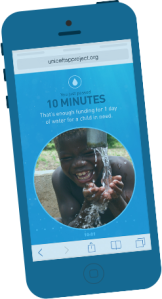
Image courtesy of WaterLex
One of the benefits of living in Geneva, Switzerland, is that I have access to the United Nations and international organizations that work with it. WaterLex, for example, is an international NGO that partners with UN Water. It takes an interesting, forward-looking, “lawyerly” approach to working on issues related to freshwater scarcity. The group, with a staff of seven based here, helps water-governance stakeholders in various countries establish policies and standards that comply with the human right to water and sanitation (HRWS). To do its work, the staff consults with more than 100 international experts in water management, development and law.
Many water NGOs work on access to water, helping people in water-stressed communities survive by delivering clean water, digging wells, installing pumps, and so forth. WaterLex attacks the problem close to its root and in a way that helps enable water security for future generations: It trains lawmakers and others with influence over water resources in a community, or a country, on how to implement new legal frameworks in which the human right to water is central.
WaterLex Executive Director Jean-Benoit Charrin co-founded the organization in 2010, the same year the human right to water and sanitation became fully recognized. I spoke with him on Tuesday at the WaterLex offices down the street from the Palace of Nations (UN). The rest of the staff, a mix of lawyers and operations experts, were away on missions. Although I would have liked to meet them, I’m glad they were off doing their work.
“There are four things we never want to hear people say again,” Charrin said. “That they didn’t know there was a problem. That they know there is a problem, but they don’t know how to deal with it. That they know there is a problem and how to deal with it, but they don’t know how to get the money. And finally, that they know there is a problem but they don’t care.” He paralleled the four statements succinctly with four WaterLex work areas: providing assistance with information, capacity-building, budgeting, and accountability. Learn more about the group’s work below.
WaterLex tools (naturally, these are also on the Water Resources page):
WaterLex Legal Database on the Human Right to Water and Sanitation
WaterLex Toolkit: Integrating the Human Right to Water and Sanitation in Development Practice
Examples of WaterLex activities:
- Worked with 10 universities to develop its online Legal Database (link above), a reference tool for policy makers that enables them to harmonize their legal frameworks with HRWS.
- Trained more than 40 members of the Pan African Parliament on the integration of national legal frameworks with HRWS.
- Partnered with the UN Development Programme (UNDP) to advise the government of Niger on designing a decentralized cooperation strategy that complies with human rights obligations.
- Drafted a resolution adopted by the African Commission on Human and People’s Rights clarifying legal responsibilities of states in the management of water as a result of human rights commitments.
- Worked with the Swiss Agency for Development Cooperation (SDC) to develop a toolkit and field training for water program managers in Nicaragua, Moldova and Mozambique.
- Assisted the UN Economic Commission for Europe (UNECE) in the design of an Equity Score Card to help governments assess their population’s relative access to safe and affordable drinking water.









